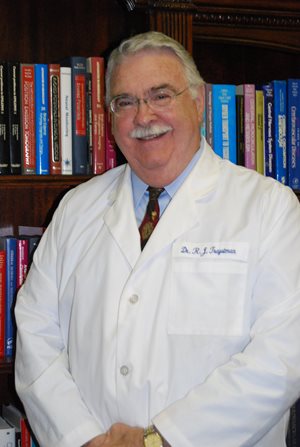- Home
- About Us
- Newsletters
- Meetings
- Membership
- Journal
- Scientific Interest Groups
- Helpful Links
In Memoriam, Richard J. Traystman 1942-2017
 Richard (Dick) J. Traystman passed away on October 19, 2017, surrounded by devoted family and cared for by the doctors and nurses of the University of Colorado Denver Anschutz medical center that he did so much to advance. He will be remembered and honored in the years to come by the tributes of the legion of colleagues, friends and protégés who knew and respected him.
Richard (Dick) J. Traystman passed away on October 19, 2017, surrounded by devoted family and cared for by the doctors and nurses of the University of Colorado Denver Anschutz medical center that he did so much to advance. He will be remembered and honored in the years to come by the tributes of the legion of colleagues, friends and protégés who knew and respected him.Dick represented, in many ways, the best of a generation of outstanding cerebrovascular scientists with numerous seminal contributions to the field. He will also be long remembered as the “mentor of all mentors” in recognition of the over 100 fellows, students and junior faculty that he trained and supported in their own quest for excellence in science. These individuals will continue to extend Dick’s deep heritage in the field of cerebrovascular physiology and ischemia over many generations to come.
A native of New York, Dick attended Long Island University near his home, receiving both B.S. and M.S. degrees. He received his Ph.D. from Johns Hopkins University in 1971 and completed a postdoctoral fellowship with Drs. Harold D. Green and Carlos E. Rapela at the Bowman Gray School of Medicine, Wake Forest University, which cemented his life-long passion for the study of cerebral blood flow and metabolism. In 1972, he returned to Johns Hopkins as an assistant professor of Environmental Health Sciences in the School of Hygiene and Public Health. In 1980, he moved to the Anesthesiology/Critical Care Medicine Department at the Johns Hopkins University School of Medicine where he was appointed the first Director, the Vice-Chairman, of Research. He spent the next 23 years building the Anesthesiology/Critical Care Department into the premier department that it is today. In 2003, he moved across the country to assume the roles of Associate Vice President for Research Planning and Development and the Associate Dean for Basic Science Research at Oregon Health & Science University. In 2007, Dr. Traystman became the Vice Chancellor for Research at the University of Colorado Denver School of Medicine and was named a Distinguished University Professor in 2011. He remained an active researcher to his last days, showing no loss of the passion that sustained him throughout his career.
The significance of his scientific contributions to the field of cerebral blood flow and metabolism cannot be overstated. His publications span almost five decades. They meticulously constructed the conceptual framework by which we now understand collateral ventilation and blood flow, and the ways in which altered physiological settings can lead to clinically relevant disease states. These findings elucidated not only the clinical understanding of cerebrovascular dynamics in fluctuating conditions, but also significantly contributed to the development of, and understanding behind, technological advances in monitoring vascular flow and intracranial pressure. Dick’s scientific productivity is impressive, contributing to more than 475 peer-reviewed publications, over 100 book chapters and numerous editorials, reviews and commentaries. This impressive collection of original peer-reviewed studies spanning over 40 years demonstrates long-standing productivity, creativity and important contributions to the research community.
Dick was a strong advocate for the Journal of Cerebral Blood Flow and Metabolism and its parent Society, the International Society of Cerebral Blood Flow and Metabolism (ISCBFM). Dick has been a member of ISCBFM since its inception and was an active contributor throughout his career. Dick served as Editor-in-Chief of Journal of Cerebral Blood Flow and Metabolism (2003-2009) and was elected President of the International Society of Cerebral Blood Flow and Metabolism (2011-2013), allowing him to continue to lead and influence stroke science on national and international levels. He received numerous honors and prizes, including the American Society of Anesthesiologists’ Excellence in Research Award, the inaugural Laerdal Memorial Lectureship from the Society of Critical Care Medicine, the American Heart Association’s Distinguished Scientist Award and the American Stroke Association’s Willis Lecturer. In 2017, Dick received what he considered his greatest honor, the Lifetime Achievement Award from the ISCBFM.
As many know, Dick was a warm and charming gentleman, full of humor and love of life. He had a great passion for baseball and for music, never missing the opportunity to take in an opera anywhere he might travel. He also had a great love of movies and the cinema, perhaps deeply rooted from childhood memories of his first job as a movie theater usher.
Dick leaves behind his loving wife Suzann Lupton of Denver, Colorado.
Patricia D. Hurn PhD
Paco S. Herson PhD
